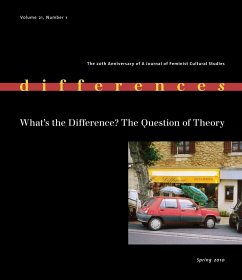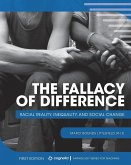This special anniversary issue of differences considers how critical theory has changed in the twenty years since the journalâs inception. differences first appeared in 1989 in the midst of heated debates about the relative merits of post-structural theories of difference and the politics of racial and sexual diversity. In the ensuing years, the journal has established itself as a critical forum where the problematic of differences is explored in texts ranging from the literary and the visual to the political and social. In this issue, contributors bring their own critical convictions, personal passions, and sometimes unexpected investments to bear on questions of what counts as theory today and what kinds of work theory still does. Distinguished contributors from a variety of disciplines and political positions look at the contemporary theoretical landscape. One contributor argues that the modern university needs to move away from its emphasis on output and to acknowledge instead the pleasures of teaching, learning, and thinking. Another suggests that the confluence of physiology and phantasy in psychoanalyst Melanie Kleinâs work offers a new way to think about critical theories of embodiment. Yet another contributor racializes âwhiteness,â asking whether a male-authored work that contains no black characters of consequence is nevertheless fair game for a black feminist reading.








